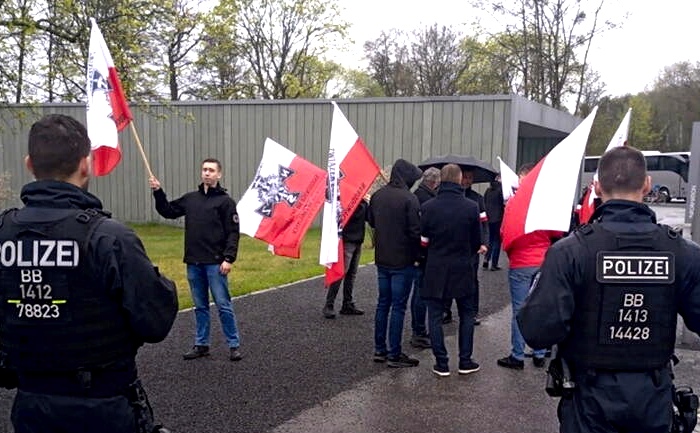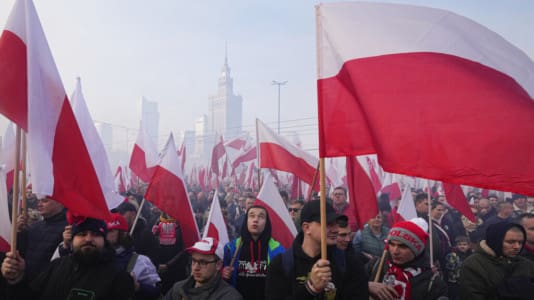A delegation from the association of the National Armed Forces (NSZ), a Polish resistance group that fought both the Germans and then the Soviets, was denied entry for the commemoration of the 78th anniversary of the liberation of the Ravensbrück concentration camp. The organizers called in the police who surrounded the group of Poles.
According to journalist Tomasz Duklanowski from Radio Szczecin, delegations from Poland attend every year. The NSZ delegation was from Szczecin and was denied entry. The organizers said they had a right to deny entry and refused to explain the reasons for their decision. They did however let in a delegation from Antifa who were displaying LGBT symbols and banners equating capitalism with fascism.
According to Prof. Wojciech Polak from Copernicus University in Toruń, “this incident is an example of anti-Polonism.” A total of 25 percent of all women in the concentration camp were Polish, and many of them were murdered and subjected to medical experiments. Denying Poles entry to the commemoration was a scandal, argued the professor in an interview with wpolityce.pl.
Prof. Polak warned that anti-Polish sentiment is on the rise in Germany along with pro-Nazi tendencies in both German society and even its military. He also argued that this sentiment is in answer to Polish assertiveness over both World War II reparations and the war in Ukraine.
“The Germans were prepared to tolerate Poland as a colony but not as a partner,” said Prof. Polak.
The Polish academic also recalled German contempt toward Poles. He called it a “consequence of an incomplete denazification post-1945,” and believed that “anti-Polonism should in legal terms be treated in the same way as antisemitism” because German wrongs towards both Jews and Poles were similar.
Asked whether the organizers of the Ravensbrück commemoration objected to Polish flags or the insignia of the NSZ fighters, the professor said that the organizers were looking for a pretext. He called for the Polish government to protest loudly and to consider retaliatory measures such as limiting the rights of German delegations to visit Poland.
The academic felt that German assertions of having learned the lessons of World War II did not always go hand in hand with reality on the ground, citing examples of exhibitions glorifying Nazi generals in the Bundeswehr and the behavior of soldiers today showing similar elements to that of the Wehrmacht.
According to Prof. Polak, denazification is something that never really happened in Germany. “Only a fraction of the guilty were actually punished and many served short jail terms of five years or less, but equally as important is the fact that German consciousness has not been altered when attitudes toward Poles are concerned,” he claimed.
“This is why the Polish authorities must react to situations such as the one in Ravensbrück,” the academic added.






